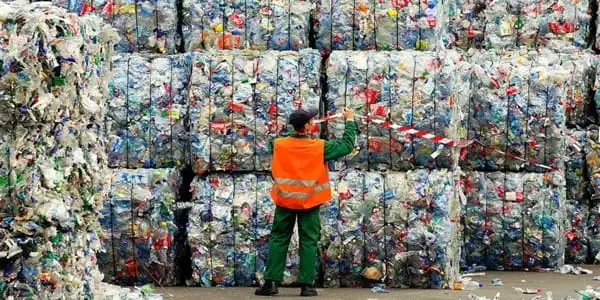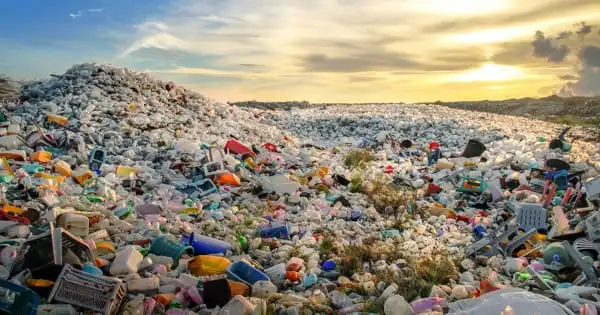The invasion of plastics on the planet is a reality. Remember that the floating plastic waste island in the Pacific Ocean now measures 1.6 million km2. If we want to save the planet, it is up to each and every one of us to act.
Plastic has become an indispensable part of our daily lives. It’s in everything: product packaging, cosmetic ingredients, textiles, cell phones, and so on. It’s even in the chewing gum you’re probably chewing right now! Its pervasiveness is such that many people would find it difficult to give it up. Reducing plastic consumption thus necessitates not only a change in habits but also a shift in mindset.
Plastic waste is regarded as one of the most serious environmental issues of our time. IASS researchers polled German consumers about their use of plastic packaging. According to their findings, fundamental changes in infrastructure and lifestyle, as well as cultural and economic transformation processes, are required to make zero-waste shopping the norm.
Our findings indicate that consumers must currently exert considerable effort and knowledge in order to avoid plastic packaging. If we want to make low-waste goods and goods without single-use plastic packaging the most affordable and convenient option, we must change the relevant infrastructures, economic incentives, and political framework conditions.
Katharina Beyerl
Reducing packaging waste is important to 96 percent of the German population. Nonetheless, private end consumption of packaging in Germany has been steadily increasing since 2009. The amount of plastic packaging waste generated by end-users in Germany has more than doubled since 1997, reaching 3.2 million tons in 2018. Packaging consumption in Germany was 228 kilograms per capita, significantly higher than the European average of 174 kilograms per capita.
“Recycling only addresses the symptoms of the plastic crisis; it does not address the underlying cause, waste generation. We wanted to learn more about the barriers that prevent Germans from reducing their daily consumption of plastic food and beverage packaging. For our research project, a total of 40 people took part in four focus group discussions,” explains Jasmin Wiefek, the study’s lead author.

In their analysis of the discussions, the researchers identified twelve barriers to reducing plastic packaging consumption:
(a) Shopping habits: Participants in the focus groups primarily shop at supermarkets or discounters rather than markets or zero-waste stores. The discussion also revealed that the majority of participants do not bring their own bags or containers to the grocery store. Processed and packaged foods are widely consumed.
(b) Hygiene: Participants expressed concerns about the hygienic properties of freely accessible displays of unpacked goods, the use of self-brought packaging, and long-term reusable packaging options in general during discussions.
(c) Priorities: Several participants described how their efforts to use less plastic packaging clashed with other daily priorities. One example given was that parents do not want to pack heavy backpacks for their children and, as a result, prefer to use plastic bottles rather than glass bottles.
(d) Diffusion of responsibility: According to the participants, it is the responsibility of both individuals and industry to solve the “plastic problem”: On the one hand, because the industry is to blame for so many products being packaged in plastic, it must provide solutions. They did, however, emphasize that consumers should shop more mindfully and avoid products in plastic packaging.
(e) Accessibility and infrastructure: Participants reported that zero-waste shops and weekly markets were difficult to find and took more time and effort to get to than local supermarkets or discounters.
(f) Time and time structures: Another significant barrier to plastic-free shopping is time. Accessing zero-waste shops and markets would take more time for most people due to the travel distances involved. Participants pointed out that shopping would take longer if they filled their own containers with food, and that the containers would have to be cleaned afterward. They also mentioned that preparing unprocessed foods takes longer.
(g) Consumer Culture: When it came to shopping, the participants stated that they did not place a high value on the availability of a “wide range of products.” Many people, however, emphasized the importance of being able to find specific products in stores. This translates into an indirect demand for a wide range of products, which zero-waste / low-plastic retailers find difficult to implement. Discussions in focus groups also revealed that our culture of spontaneous and on-the-go consumption makes reducing packaging difficult. Many participants were unaware that non-regional and non-seasonal foods, which we consume on a daily basis, must be packaged in order to maintain freshness during long-distance transport.
“Our findings indicate that consumers must currently exert considerable effort and knowledge in order to avoid plastic packaging. If we want to make low-waste goods and goods without single-use plastic packaging the most affordable and convenient option, we must change the relevant infrastructures, economic incentives, and political framework conditions” Katharina Beyerl, project leader, and co-author, explains. Simply asking consumers to shop exclusively in zero-waste stores will not achieve the goal of reducing the use of plastic packaging. Instead, fundamental changes in societal structures and lifestyles, as well as a cultural shift, are required.
















